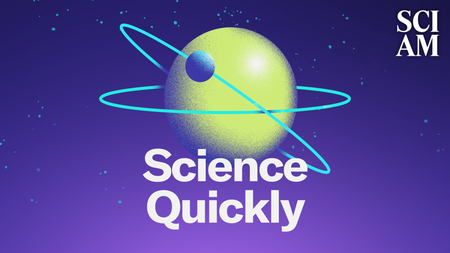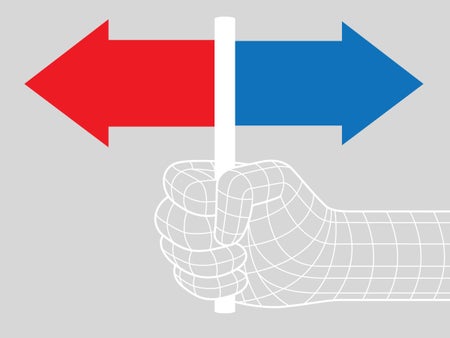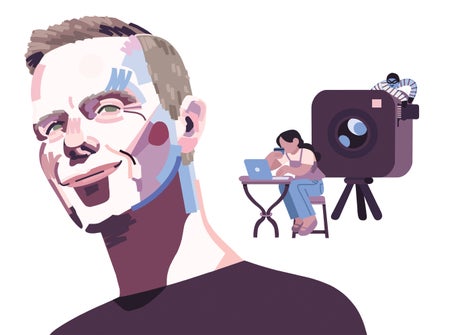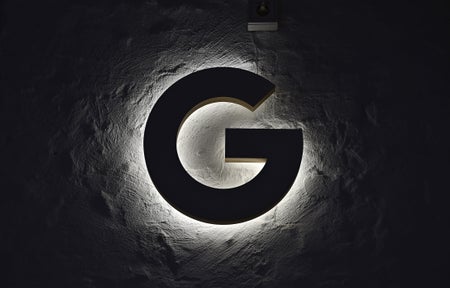
Why ‘Brain Rot’ Is 2024’s Word of the Year
The phrase “brain rot” spiked 230 percent from 2023 to 2024, according to the makers of the Oxford English Dictionary
Ben Guarino is an associate technology editor at Scientific American. He writes and edits stories about artificial intelligence, robotics and our relationship with our tools. Previously, he worked as a science editor at Popular Science and a staff writer at the Washington Post, where he covered the COVID pandemic, science policy and misinformation (and also dinosaur bones and water bears). He has a degree in bioengineering from the University of Pennsylvania and a master's degree from New York University's Science, Health and Environmental Reporting Program.

Why ‘Brain Rot’ Is 2024’s Word of the Year
The phrase “brain rot” spiked 230 percent from 2023 to 2024, according to the makers of the Oxford English Dictionary

Searching for Underwater Treasure with Magnet Fishers
With the help of a powerful rare-earth alloy, magnet fishers pull garbage out of polluted waterways

Voting Has Never Been More Secure Than It Is Right Now
Efficient machines, paper ballots and human checks make the U.S. voting system robust

This Sponge Captures the Teeny Bits of Gold in Electronic Waste
A self-building sponge that efficiently collects gold could eliminate some harsh methods used to process e-waste

AI in the Election Is about More Than Just Misinformation
The next U.S. president will have to contend with regulations around AI—and the electorate is already facing AI-generated misinformation.

Why Disasters Like Hurricanes Milton and Helene Unleash So Much Misinformation
Falsehoods spread when uncertainties—and emotions—are high after hurricanes

How the Next President Will Determine the Future of AI
Both U.S. presidential candidates voice support for innovation in AI, but Kamala Harris has been more outspoken about its risks to individuals

What Search Engine Should You Use?
Alternatives to Google Search include Bing, DuckDuckGo, Brave Search and Ecosia

What Giant Data Breaches Mean for You
The security expert who created Have I Been Pwned? shares advice for protecting sensitive data

Google Search Ruled a Monopoly: What’s Next?
An antitrust expert explains Monday’s landmark legal decision that Google illegally cemented its dominance in Internet search

What to Know about Project 2025’s Dangers to Science
Project 2025 would jeopardize federal scientists’ independence and undermine their influence

Longer and Longer Freight Trains Drive Up the Odds of Derailment
Replacing two 50-car trains with a single 100-car train increases the odds of derailment by 11 percent, according to a new risk analysis

Defend Yourself against AI Impostor Scams with a Safe Word
Fraudsters are using AI voice-cloning services to steal identities. Code words can thwart this deception

A Structural Engineer Explains Why the Baltimore Bridge Collapsed
A large container ship “totally removed” a critical pier from Baltimore’s Francis Scott Key Bridge

This Computer Scientist Seeks a Future Where AI Development Values Copyright
The new nonprofit Fairly Trained certifies that artificial intelligence models license copyrighted data—which often isn’t the case

Elon Musk’s Neuralink Has Implanted Its First Chip in a Human Brain. What’s Next?
The wealthiest person on Earth has taken the next step toward a commercial brain interface